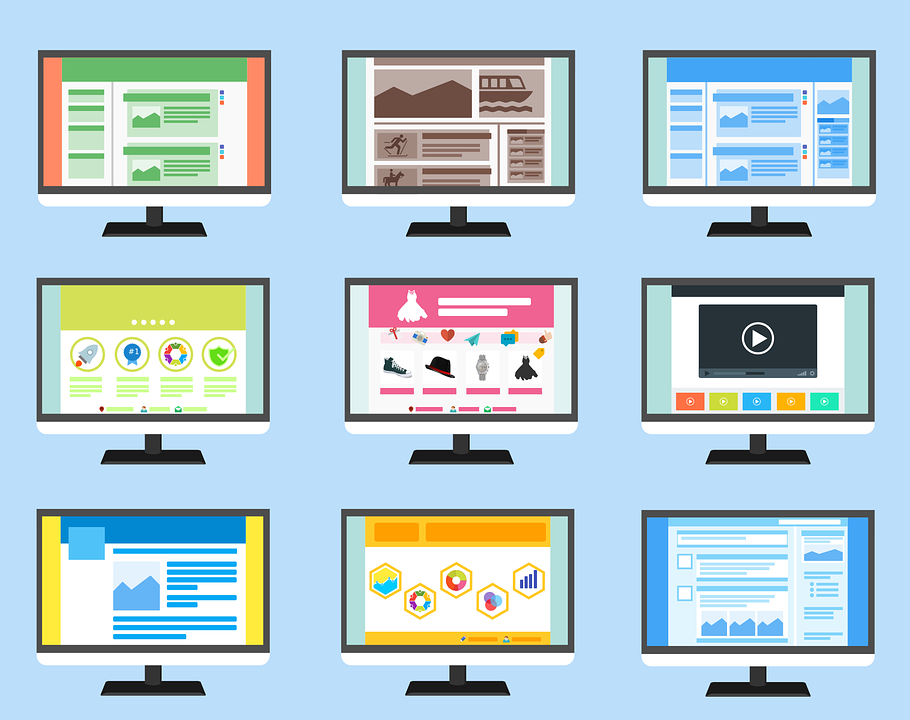4 min read
10 web frameworks which are not going anywhere in this decade
Anurag : Jan 6, 2020 12:00:00 AM

-Aug-21-2023-04-28-35-6758-PM.jpg?width=1920&name=ezgif_com-webp-to-jpg%20(3)-Aug-21-2023-04-28-35-6758-PM.jpg)
Website development has become a much simpler thing in today’s time, but complicated on the other hand. Today, static websites are passe, as they carry no value for the website owners. It is important to build dynamic websites that can update contents easily. Moreover, it is important to build a website that meets the requirements of website owners. For example, a business which wants to sell products online should have a proper eCommerce web store. The website should feature various products, associated pictures, product information, shopping cart, payment gateway, and many other integral parts of eCommerce platforms. This is why such websites need to be developed with an open source framework.
Website and application developers use various frameworks for developing websites and apps. Depending on the framework, various unique features can be added to a website or application. Cost of development also depends on the nature of the framework, which has been used for developing the app or website. Overall security of the final website or application also depends a lot on your selection of the framework for development. In the following section, we shall find a few development frameworks, which will stay valid for the future.
1. WordPress
When it comes to a website development framework, the most basic yet robust framework is WordPress. This is an open source framework that comes with many exciting ranges of features. The best thing about this framework is that it is free to use. You do not have to pay for using this framework. However, WordPress comes with a lot of free and premium themes. If you want to use the premium themes of WordPress, you have to pay some money. Apart from that, you do not have to pay for your website building with WordPress.
2. Magento
In the field of eCommerce website development, Magento is a common name. There is hardly any person who has not heard about this eCommerce platform. This open source eCommerce platform comes with many interesting facilities and features. For your information, Magento has two versions. The basic free version comes with limited features and options. Magento Enterprise version comes with all the features that website developers need for building a powerful eCommerce platform or store. So, Magento is not free, though it is not expensive either. Small scale business owners can afford the fee for buying Magento Enterprise version. Today, more than 80% of eCommerce stores have been developed with Magento.
3. Blockchain
Although unconventional, and not something you'd expect in this list, Blockchain is an open source framework, which has been used for many purposes. From application development to Bitcoin storage and transaction recording, this framework has extensive usage in different things. For this reason, the development framework is going to stay relevant in future. People will continue using the framework for making their website, applications, etc. The main advantage of using Blockchain is that you shall get the benefit of high end security. Once a transaction is recorded on this, it cannot be erased. This is why it has been used for recording the Bitcoin transactions. Applications, developed on this framework, are regarded as safe.
4. Django
Django is a model-view-template framework for website development. It is easy to integrate Python, when you are using this framework. Python is an extensively used web development language these days. A lot of websites and applications have been designed on this development language. Popular applications like Google, YouTube and Instagram have been developed on this framework. Hence, the framework is going to stay for a long time, as it comes with excellent security and many exciting features. With Django, developers will get Convention over Configuration pattern support. Additionally, the developers will also get DRY pattern support with this framework. So, the framework is versatile, feature rich, affordable and easy to use.
5. Express
The skyrocketing popularity of Express brings no surprise for the developers. This framework has been used for designing various kinds of applications. Popular companies that use the framework are Uber, Accenture, IBM, etc. Express is a minimal and fast framework to be used for the developers. The performance of this framework is quite satisfactory. Nevertheless, it can be used for different purposes. From web to application development, you can use Express for many reasons. It comes with many exciting features. Due to its seamlessness and rich features, people prefer using this framework. Hence, this framework will stay relevant for a long time.
6. Rails
If you are seeking a MVC framework, then Rails could be an excellent option. This framework uses Ruby as the programming language. The framework is simple and robust. It offers excellent security to the final website or eCommerce platform or application. You shall find many popular applications which have been designed with this platform. Some of these applications are GitHub, AirBNB, Shopify, etc. All these applications come with a lot of unique and exciting features. To help the beginners, the framework comes with a rich library. You can find the meaning of various terms and different features in the library of Rails. So, this framework is going to stay relevant in future for sure.
7. Laravel
This is another MVC (Model View Controller) framework for web and application development. This framework uses PHP as the language for programming. So, if you are well-versed with PHP web language, you should try this framework. This framework is regarded as highly beginner-friendly. It features API support, and also comes with detailed tutorial for the programmers or developers. Though not as popular as Django and Express, Laravel has its own separate fan base. Many low budget websites and applications are developed on this framework.
8. Angular
Till now, we have discussed the backend frameworks for website and application development. Now, it is the time to switch to some front-end frameworks. Among the most popular frontend frameworks, Angular has to be named. It can be used for developing Single-Page rich applications. The framework uses Javascript as the programming language. Hence, you should know Javascript to use this framework. The good thing about Angular is that it helps create SEO-friendly applications. Renowned companies that use the framework are Google, PayPal, Microsoft, etc.
9. Ember
This is another frontend JavaScript framework for application development. Back in 2015, this framework used to be regarded as the best JavaScript framework. Today, the popularity has gone down a little. But, it is still one of the best website development frameworks. It boasts of having clients like Netflix, Google, etc. The platform offers secured website or eCommerce platform development. Ember also comes with two-way data binding feature. Overall, it is a cool framework that you can use for the purpose of robust website and application development.
10. Backbone
If you are searching for a light MVC framework for website development, this is the framework for you. Backbone is also a front-end development framework. For developing client side applications, this framework has been used. Since it is used for various commercial websites or application development processes, it is expected that the framework will stay relevant among the developers for a long time. In 2020, you shall continue finding various usages and applications of this framework for website development.
While there are many frameworks for website development, like every evolving technology, some of them may stay relevant in future and some will become unusable. The ten frameworks that have been mentioned above will stay relevant for a long time to come.

Latest technology to thrive in the website development industry
Every year comes with new hopes, same goes in terms of new technological updating in 2019, where new ideas will enlighten up the new initiative in...

The best framework for your next web app - Angular vs React
The most popular JavaScript frameworks used by front-end developers these days are AngularJS and ReactJS. In addition, these two, together with...



